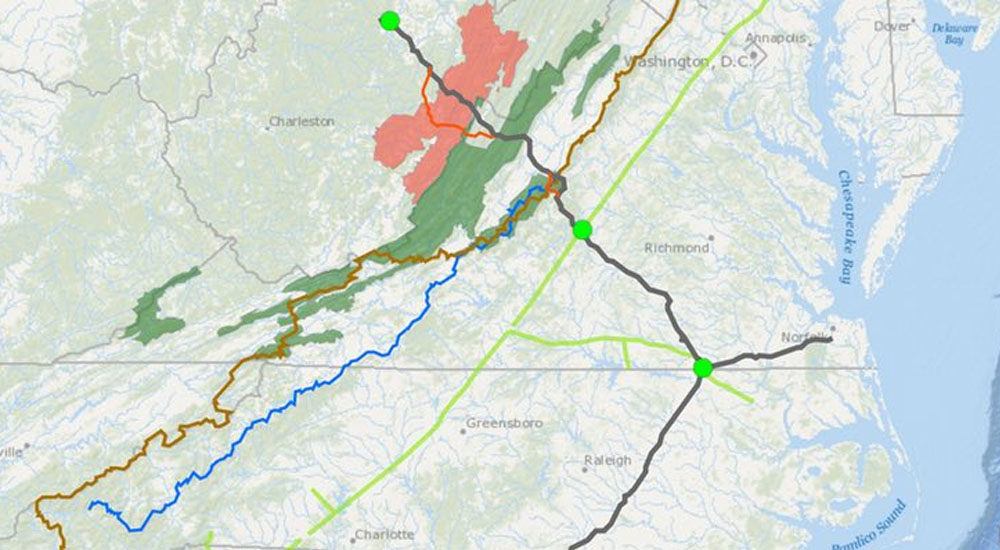Pipeline Conversation is about Tradeoffs
There has always been a push-pull dynamic between the need for energy and the desire to preserve the environment.
I can see our ancient ancestors, gathered at their encampment, where they just cleared the area of brush and woods, wondering whether or not they did damage to the raccoon nest they uncovered.
“Oh, no!” exclaimed our greatest of grandfathers. “I just displaced a raccoon family! Now they won’t feast on the tiny bugs near the camp. This will cause disease and we’ll all die!”
Maybe.
More likely, the thought probably went along the lines of “I just killed a couple of raccoons while clearing the wood. Now we can have fur and meat. Let’s make a fire with the wood we gathered and feast!”
Ultimately, this is the same great debate we’re having with the pipelines being proposed in Virginia.
On one side, we have environmentalists claiming that there will be a massive change in Virginia’s ecology because of the construction project. On the other, pipeline proponents are claiming natural gas is an economical, clean-burning energy alternative that provides environmental and security benefits.
So what are the facts?
In a recent Roanoke Times article, they stated:
An analysis by Mountain Valley Pipeline of the controversial project’s impacts on intact forests in Virginia underestimated those effects by more than 300 percent, according to an assessment by the Virginia Department of Conservation and Recreation and other state agencies.
The article goes on to report that the primary concern is about impacts to the “forest core” due to what is referred to as “forest fragmentation.”
In other words, if you cut a 125-foot wide path through the forest to build the line, what’s the impact?
“Specifically, the filing by the Department of Conservation and Recreation said the Virginia Forest Conservation Partnership’s forest fragmentation analysis of pipeline-related effects determined that the project would impact 16,661 acres. In contrast, Mountain Valley’s analysis of direct and indirect fragmentation effects anticipated impacts to 3,993 acres, reported the partnership, which includes staff from the Department of Conservation and Recreation, the Department of Forestry and the Department of Game and Inland Fisheries.”
And the long term ramifications? The government’s environmental scientists are primarily concerned that the ecosystem might be affected by increased sunlight, wind exposure, drier conditions, and the potential for invasive weeds and predators.
I am certain our ancestors in the 18th and 19th centuries had this strategic measurement in mind when plotting their course through Virginia towards the Cumberland Gap? No, you say? Perhaps, maybe, they wanted to head west and reap the economic and personal benefits instead? You might be right.
Which leads to the question? Which matters more?
The benefits of natural gas are proven and huge.
* With the increased use of natural gas carbon emissions are at nearly 25-year lows
* Air pollution has declined
* Natural gas is Virginia’s primary source of energy for electricity generation
* The price of natural gas has fallen over the last decade—by about 24 percent for households
* Overall, Virginia households save about $1,300 annually on energy costs because of natural gas
* Virginia manufacturing saves more than $57 million annually because of affordable natural gas
* Between 2004 and 2014 natural gas usage in Virginia has increased by more than 50 percent.
There are also future benefits – which includes being able to ship the product from Pennsylvania and West Virginia. Those benefits are unrealized if we don’t build the pipelines. And that includes higher energy costs.
And, while an “all of the above” energy solution is necessary, wind and solar, as far as renewables go, are way too limited and inconsistent to be relied upon as primary power sources. That’s not to say “don’t develop them” but it should not be a foundational argument to eliminate sources that meet our energy demands today.
Finally, there is the security question.
We’ve been arguing about “blood for oil” since the colonial powers sailed into the Middle East to power their newly mechanized navies. The fight over Middle East energy and the resulting societal chaos has followed suit. Would it not be more in America’s strategic interest if we focused our energy development here at home?
So, in other words, this pipeline argument is not about “forest fragmentation.” There are significant costs to NOT building it. Those costs should be considered in the conversation too.


